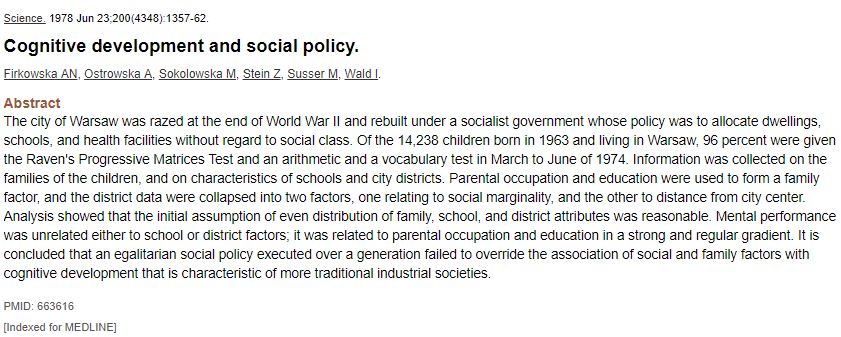bilby
Fair dinkum thinkum
- Joined
- Mar 6, 2007
- Messages
- 40,351
- Gender
- He/Him
- Basic Beliefs
- Strong Atheist
Then you have no basis for your assumption that it's not pure luck.You're assuming you can measure everything relevant. You can't.
Either there's data available to make an assessment either way; Or there's not. You want to have your cake and eat it - you claim to know that it's not about luck, but you deny the existence of the data needed to conclude that, in an attempt to prevent anyone from concluding the opposite.
Are you sure you know how the whole "reason" thing is meant to work?
Not at all. Small numbers of people have the ability to excel at sports, but we can nevertheless define what specific traits are beneficial.The 'strategic hypothesis' says that people become wealthy because they take some set of strategic decisions, using their skills, talents, and/or effort, to engineer wealth from a small starting capital. This hypothesis predicts that anyone who has the necessary intelligence and opportunity can learn to become wealthy, by emulating those who already have. If true, we would expect to see self-help books on the subject rapidly converge on the successful strategies, and a clear correlation between the relevant skills (whether those are intelligence, risk-tolerance, hard work, or something else) and success.
You're assuming:
1) That large numbers of people have the requisite ability.
If you want to excel at basketball, be tall. At weightlifting, be strong. At being a cricket batsman, be short. We can readily identify the beneficial traits, and identify which are mostly accidents of birth, and which are acquired by effort (and what kind of effort is necessary). Top athletes are rare. But we know what it takes to become one, despite that rarity.
If there's a strategy that works, it can be taught. I don't need to be a weightlifter to know what exercises, diet, and training are necessary to become one. And some of the authors of such books ARE wealthy - and if any of them detailed an actually effective strategy, rather than being guides to how to buy lottery tickets, natural selection would have kicked in. Success is highly sought after, and of there was a secret to achieving it, it couldn't stay secret for long. Humans are shit at keeping secrets.2) That the authors of such books actually know the solution and can communicate it effectively in the context of a book. Since the authors of such books aren't wealthy this condition is almost certainly not true.
Look again at the logic - examination of the winners isn't informative. You need to look at both winners and equally qualified losers. Otherwise there's no way to separate luck from strategy.For every Gates and Wozniak, there are thousands of guys who started a small business out of their garage, with a brilliant idea that they believed might be a huge success, and who took risks and put in vast numbers of hours of toil - and who ended up with nothing to show for it except debt and bankruptcy.
Look again at my list. #1 and #2 started business--but note that they were game-changer businesses, not merely additional players in the market.
This observation is consistent with the 'luck hypothesis', and is inconsistent with the 'strategic hypothesis'.
And no amount of study of the winners can logically help to build a body of evidence that might overturn that conclusion. Only a diligent study of the losers can do that - you would need to demonstrate that the most closely similar of the losers share a clear difference in approach that the winners do not share (or vice-versa).
Disagree. The number of spectacular successes is obviously very limited, but that doesn't mean it's luck. Rather, it's a matter of identifying the way to change the game and then doing the best job of actually doing so.
And winning the lottery is a matter of identifying the winning numbers, and then making sure to buy a ticket before the draw.
A very limited number of spectacular sucesses is the hallmark of an environment in which strategy is not decisive.
Luck is by far the most likely explanation for rare spectacular success. Where it isn't, it stands out like a dog's balls. And it's repeatable and teachable.


